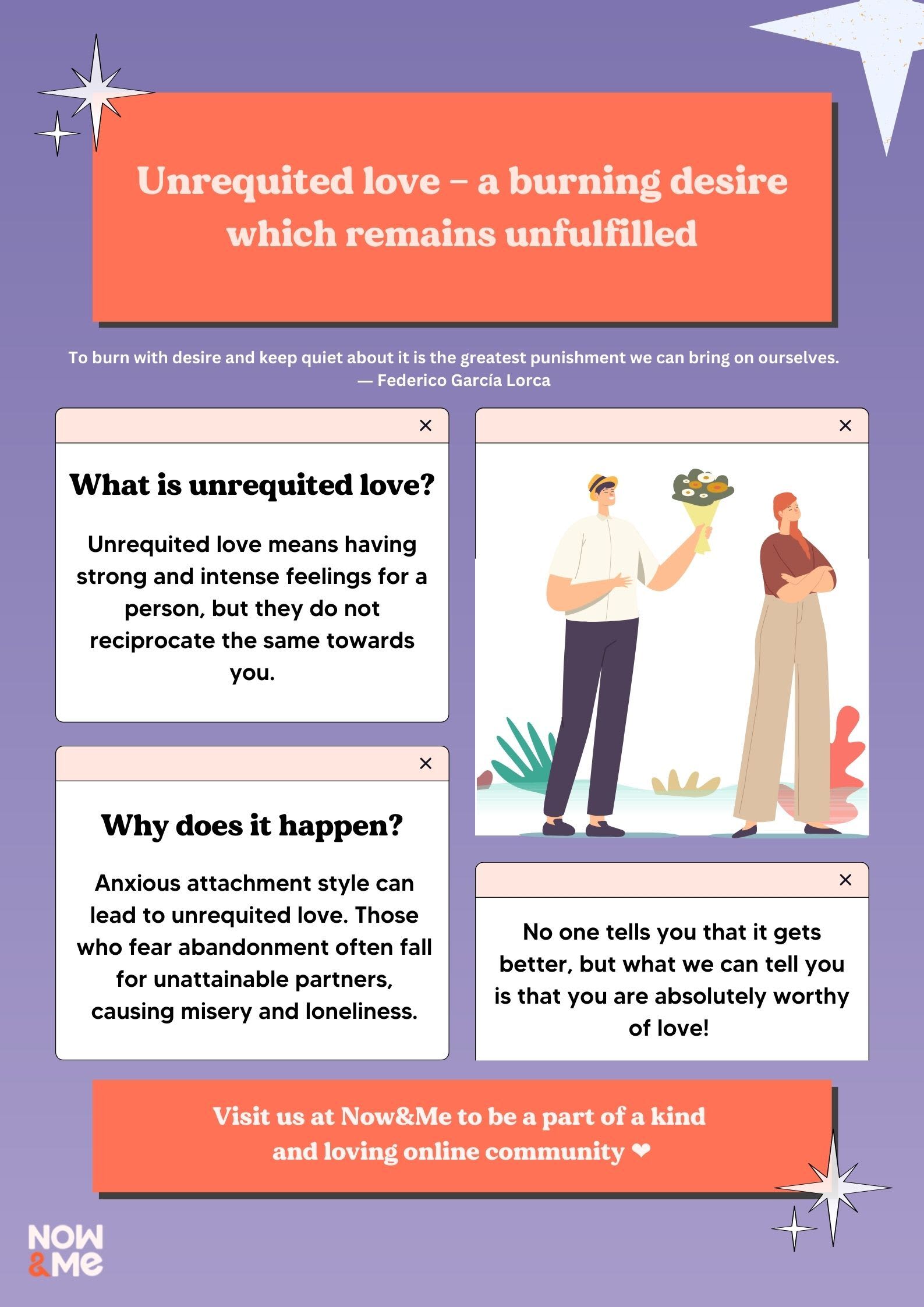FAQ
This section addresses frequently asked questions (FAQs) regarding the tragic connection between unrequited love and suicide. Below, find answers to common concerns and misconceptions surrounding this complex matter.
Question 1: What are the primary factors that contribute to the risk of suicide among individuals experiencing unrequited love?
Factors such as intense emotional distress, feelings of isolation, low self-esteem, and a perceived lack of hope can significantly elevate the risk of suicidal thoughts and behaviors.
Question 2: How can friends and family recognize the signs of suicidal ideation in someone grappling with unrequited love?
Pay attention to changes in behavior, such as increased social withdrawal, expressions of hopelessness, or giving away prized possessions. Also, be aware of verbal cues, including direct statements about wanting to die or indirect references to self-harm.
Question 3: What immediate steps should be taken if someone confides in you about experiencing unrequited love and suicidal thoughts?
Remain calm and empathetic. Listen attentively without judgment. Encourage them to seek professional help immediately and offer to accompany them to a mental health provider.
Question 4: Are there effective treatments available for individuals struggling with unrequited love and suicidal ideation?
Yes, various therapeutic approaches, including cognitive-behavioral therapy, interpersonal therapy, and psychodynamic therapy, have proven effective in helping individuals cope with unrequited love and reducing suicidal risk.
Question 5: What role can social support play in preventing suicide among those affected by unrequited love?
Strong social support networks can provide emotional validation, a sense of belonging, and practical assistance, all of which can buffer against suicidal impulses. Encourage individuals to confide in trusted friends, family members, or support groups.
Question 6: How can we raise awareness and reduce the stigma surrounding suicide in the context of unrequited love?
Open and honest discussions about mental health, including the connection between unrequited love and suicide, can help destigmatize these issues and encourage individuals to seek help without shame or fear.

Premium Vector | The concept of unrequited love the broken heart of - Source www.freepik.com
Summary: Addressing unrequited love and suicide requires a multifaceted approach that encompasses mental health support, social connection, and community awareness. By recognizing the risk factors, understanding the warning signs, and facilitating access to treatment, we can work towards preventing unnecessary tragedies.
Next Article Section: Exploring the Psychological Impact of Unrequited Love
Unrequited Love And Suicide: A Tragic Tale
Editor's Notes: "Unrequited Love And Suicide: A Tragic Tale" have published today date". Give a reason why this topic important to read.
We've done some analysis, digging information, made Unrequited Love And Suicide: A Tragic Tale we put together this Unrequited Love And Suicide: A Tragic Tale guide to help target audience make the right decision.

Suicide From Unrequited Love Ironic Red Worm Black Humor Vector, Ironic - Source pngtree.com
FAQ
Unrequited love is a common experience that carries unique challenges and emotional turmoil. Though suicide may at times seem like a solution, it's paramount to seek support and understand the potential consequences.

Best poems about unrequited love - Source www.thenarratologist.com
Question 1: What are the signs of unrequited love?
Signs of unrequited love include an intense emotional attachment to someone who does not reciprocate it; persistent thoughts, dreams, and fantasies about the person; attempts to win their affection that consistently fail; a distorted sense of reality, where one believes the other person might feel similarly; and persistent feelings of sadness, hopelessness, and despair.
Question 2: How can I cope with the pain of unrequited love?
Coping with unrequited love involves acknowledging and accepting the emotions, setting boundaries with the object of affection, focusing on self-care, seeking support from trusted friends or family members, practicing mindfulness techniques, and considering professional help if needed.
Question 3: Is it normal to feel suicidal when experiencing unrequited love?
While it's understandable to feel overwhelmed and desperate, suicide should never be considered an option. Feeling suicidal is a serious matter that requires immediate attention. If you're experiencing these thoughts, reach out to a crisis hotline, mental health professional, or trusted person for help.
Question 4: What are the risks of suicide?
Suicide is a permanent solution to temporary problems. It leaves devastating consequences for loved ones and robs the individual of the opportunity for growth and healing. It's essential to remember that there are always other options and that help is available.
Question 5: How can I help someone who is suicidal due to unrequited love?
If you know someone who is suicidal due to unrequited love, be empathetic and supportive. Listen to their feelings without judgment, encourage them to seek professional help, and provide a safe space for them to express their emotions. It's crucial to take their concerns seriously and to offer practical assistance, such as accompanying them to a mental health appointment or monitoring their well-being.
Question 6: Is there a way to prevent suicide due to unrequited love?
Suicide prevention efforts include recognizing the signs of distress, encouraging open communication about mental health, reducing access to lethal means, promoting help-seeking behavior, and challenging the stigma surrounding suicide. By raising awareness and creating a supportive environment, we can help prevent this tragic outcome.
Remember that unrequited love does not define your worth, and there is hope for healing and resilience. Seeking professional help and leaning on the support of loved ones can make a significant difference in navigating this challenging experience.
For further information and resources on unrequited love and suicide prevention, please reach out to mental health organizations or crisis hotlines.
Tips
Unrequited love can be an incredibly painful and devastating experience, leading to feelings of isolation, depression, and despair. While it is important to seek professional help in such situations, there are also some practical tips that can help you cope with this difficult time.
Tip 1: Acknowledge and validate your feelings.
It is important to understand that your feelings are real and valid. Don't try to dismiss them or pretend that they don't exist. Allow yourself to feel the pain fully and without judgment. This will help you process and move through the grieving process.
Tip 2: Seek support from others.
Unrequited Love And Suicide: A Tragic Tale It can be helpful to talk to someone about how you are feeling. This could be a friend, family member, therapist, or anyone else who you trust. Sharing your experiences can provide you with validation and support, and help you feel less alone.
Tip 3: Practice self-care.
Take care of yourself both physically and emotionally. This means eating healthy, getting enough sleep, and exercising regularly. It is also important to engage in activities that make you happy and bring you joy.
Tip 4: Set boundaries.
It is important to set boundaries with the person you love, even if it is difficult. This means not contacting them or being around them if it is causing you pain. Setting boundaries can protect your own emotional well-being.
Tip 5: Focus on the present moment.
Dwelling on the past or worrying about the future will only make things worse. Instead, try to focus on the present moment. This can help you ground yourself and reduce the intensity of your emotions.
These tips can provide you with some guidance and support as you navigate the difficult terrain of unrequited love. Remember that you are not alone and that there are people who care about you. With time and effort, you can heal and move on from this painful experience.
Unrequited Love And Suicide: A Tragic Tale
Unrequited love is a painful experience that can lead to a multitude of negative consequences, including suicide. It is crucial to recognize the key aspects associated with this tragic tale to provide timely intervention and support.
- Emotional Distress: Unrequited love triggers intense emotions, such as sadness, anger, and despair.
- Low Self-Esteem: Rejection can erode self-worth, leading to feelings of inadequacy and worthlessness.
- Hopelessness: The belief that the desired love will never be reciprocated can foster a sense of hopelessness and despair.
- Impulsivity: In moments of emotional turmoil, individuals may engage in impulsive behaviors, including self-harm or suicide.
- Social Isolation: Rejection can lead to social withdrawal, exacerbating feelings of loneliness and isolation.
- Lack of Support: Stigma surrounding suicide and mental health issues can hinder individuals from seeking help.
These aspects intertwine to create a dangerous cycle that can culminate in tragic outcomes. It is imperative to raise awareness about the mental health risks associated with unrequited love and provide accessible support systems for those struggling with these emotions. By fostering open dialogue, reducing stigma, and promoting mental health literacy, we can collectively work towards preventing the devastating consequences of unrequited love.

Unrequited Love - Sad Quotes Fan Art (34509494) - Fanpop - Source www.fanpop.com
Unrequited Love And Suicide: A Tragic Tale
Exploring the connection between "Unrequited Love And Suicide: A Tragic Tale" reveals a heartbreaking relationship. Unrequited love, a common human experience, refers to deep, passionate feelings for another person who does not reciprocate them.
Unrequited Love: Causes, Types, Signs And How To Deal With It | Now&Me Blog - Source nowandme.com
Unresolved unrequited love can trigger powerful emotions like despair, loneliness, and emptiness. In extreme cases, individuals may feel they have no alternative but to end their own lives. Tragically, unrequited love has been linked to a greater risk of suicide, particularly among young adults.
Understanding the connection between unrequited love and suicide is crucial for prevention and support efforts. By recognizing the warning signs and providing timely intervention, we can help prevent these tragedies.
Conclusion
The exploration of "Unrequited Love And Suicide: A Tragic Tale" underscores a somber reality. Unrequited love, while a common experience, can have devastating consequences. It is essential to recognize the potential risks and to provide support and resources for individuals struggling with unrequited love.
By fostering open dialogue, encouraging mental health awareness, and promoting healthy coping mechanisms, we can create a supportive environment that prevents unnecessary loss. Remember, unrequited love is not a reason to end one's life. There is always hope, and there are people who care.
